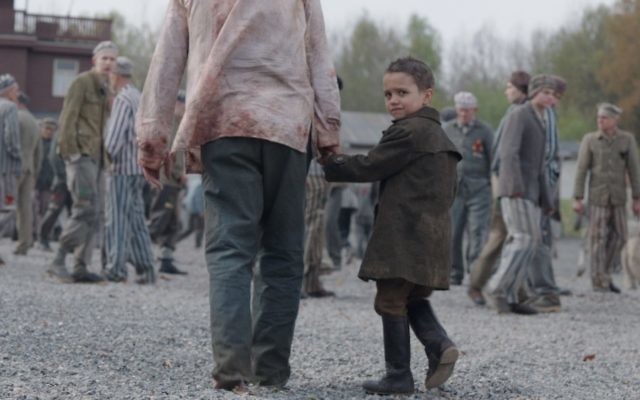How Work Saved Me From Nazis
The second part of a tribute by Holocaust survivor Norbert Friedman to an engineer who helped save his life.
Mr. Pusch simply refused to join the orgy of destruction and tried, often successfully, to thwart its design. Was it something in his upbringing? He did not seem to be a practicing Christian.
Was it some other ethical imperative that prompted him to behave this way, or was it simply a mysterious predisposition to do the right thing?
Why were there so few like him, especially those whose moral training should have equipped them with the knowledge and proper attitude to step forward?
His concern for my welfare once saved my life, I believe.
In the struggle against the Russian army, the Germans developed a new bomber, the Heinkel 177. It was a strategic bomber intended to support a long-term bombing campaign against Soviet industry in the Urals.
It had a much larger wingspan than the popular Heinkel 111 and was designated to carry a larger load and travel longer distances.
Our department at the airplane factory was assigned the task of creating testing instruments to inspect the functioning of the wing flaps.
Friday, Oct. 8, 1943, was Erev Yom Kippur. Engineer Pusch came to me with a sketch of a contraption to be put together in a hurry so that we could start testing. I went to the machine shop and used existing apparatus parts to put together a working instrument.
Mr. Pusch seemed not to be satisfied with the result and told me to improve it and present it to him after lunch.
He then insisted on making more involved changes, a process that continued until after quitting time, when I hoped to go back to the camp and join my father in a meager pre-fast meal that he tried to prepare. There was talk of some people meeting in a barracks for a brief Kol Nidre service.
Engineer Pusch insisted on redesigning the instrument from the beginning.
He brought me a sandwich, apologized for the delay and insisted that we stay until the results were satisfactory.
He kept coming in every hour or so to check on my progress, offering suggestions on how to proceed. He noticed my agitation and said, “We have to finish the job before the morning, no matter what.”
I noticed that the lights in his office were on and that he spent a lot of time on the telephone, probably talking to his wife.
He came down shortly after midnight and, without checking on the project’s status, shut off the light over my bench and said, “That is all for tonight. We will finish tomorrow. I will take you back to the camp.”
My father was elated to see me and hugging and confessing said, “I did not think that I would see you again. Where were you?”
I was startled and replied, “I was working.”
I told him that Mr. Pusch had insisted I stay and work on an urgent assignment.
A sudden silence descended on the people in the room, followed by a uniform outcry. “He held him to keep him safe. G-d bless his soul.”
It took me a while to make sense of their outburst.
Finally, I got the story: Just as the holiday was about to start, the Gestapo car with the chief from the town of Mielec, Walter Thormeyer, his henchman Rudi Zimmerman, the camp commandant and another SS man entered the camp. Inside, they opened fire, shooting at random at anyone in sight and killing over 20 prisoners.
As I found out later from Mr. Pusch, the Nazi group had been drinking heavily, knew about the significance of Yom Kippur and decided to be the ultimate judges of “who shall live and who shall die.”
Engineer Pusch decided to do what he could to keep me out of the harm.
Because it could not be proved that he risked his life to save a Jewish life, he did not meet the Yad Vashem criteria for being recognized as righteous among the nations.
But in my heart and in the garden of my memories, he will remain the most righteous human being. May his memory be for a blessing.




comments